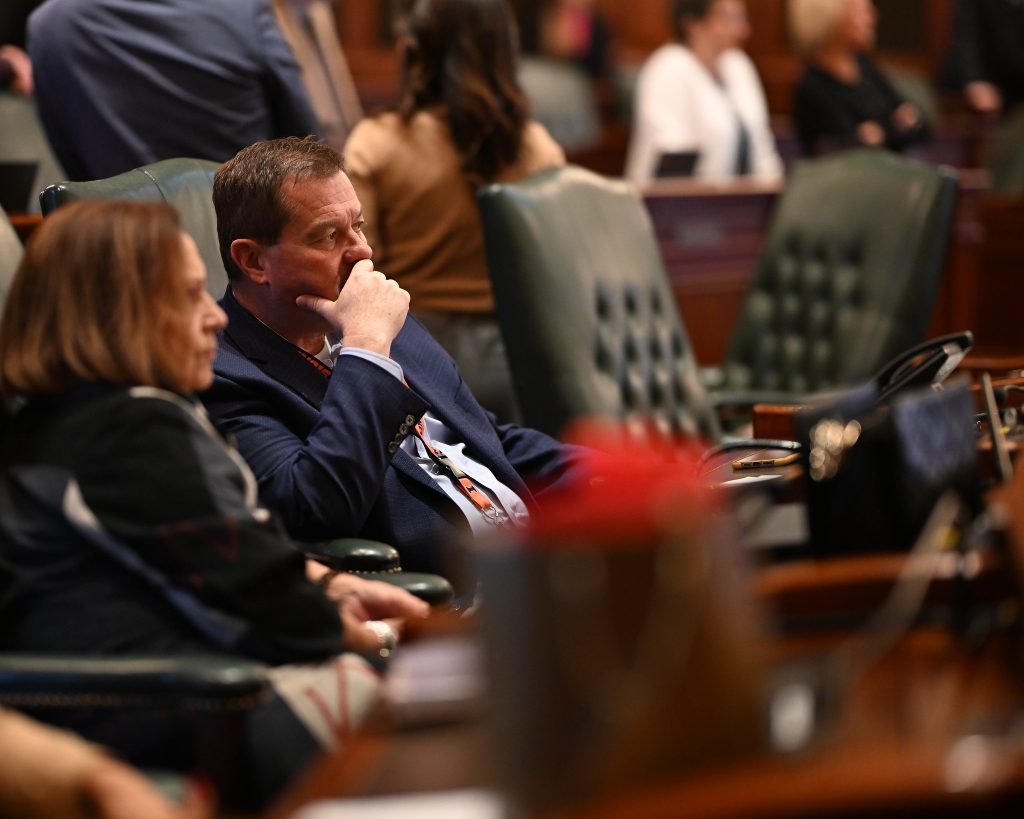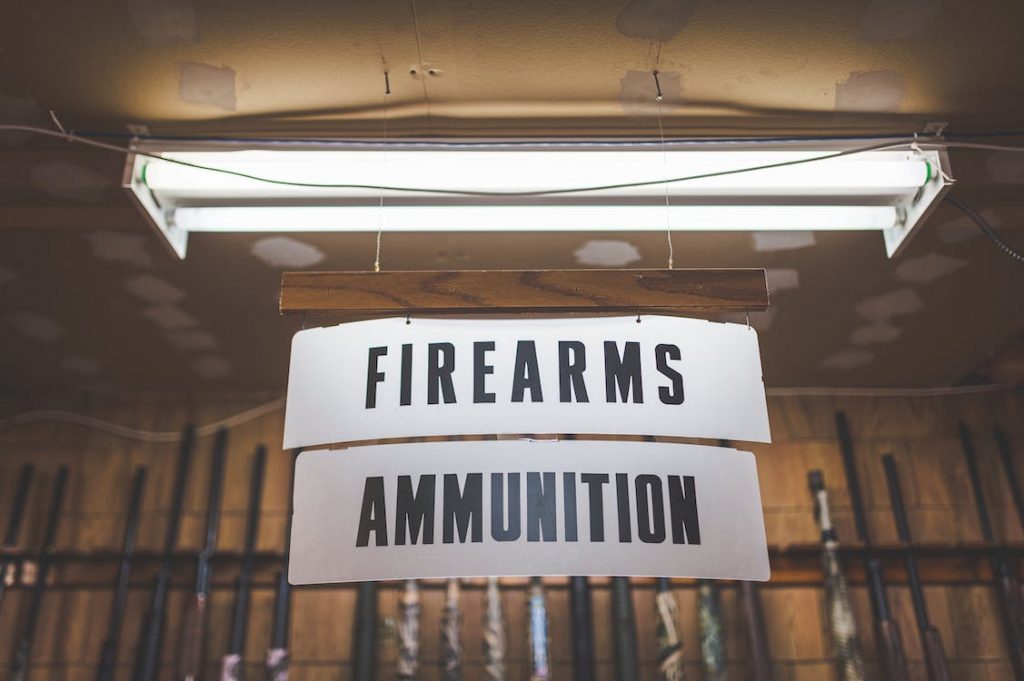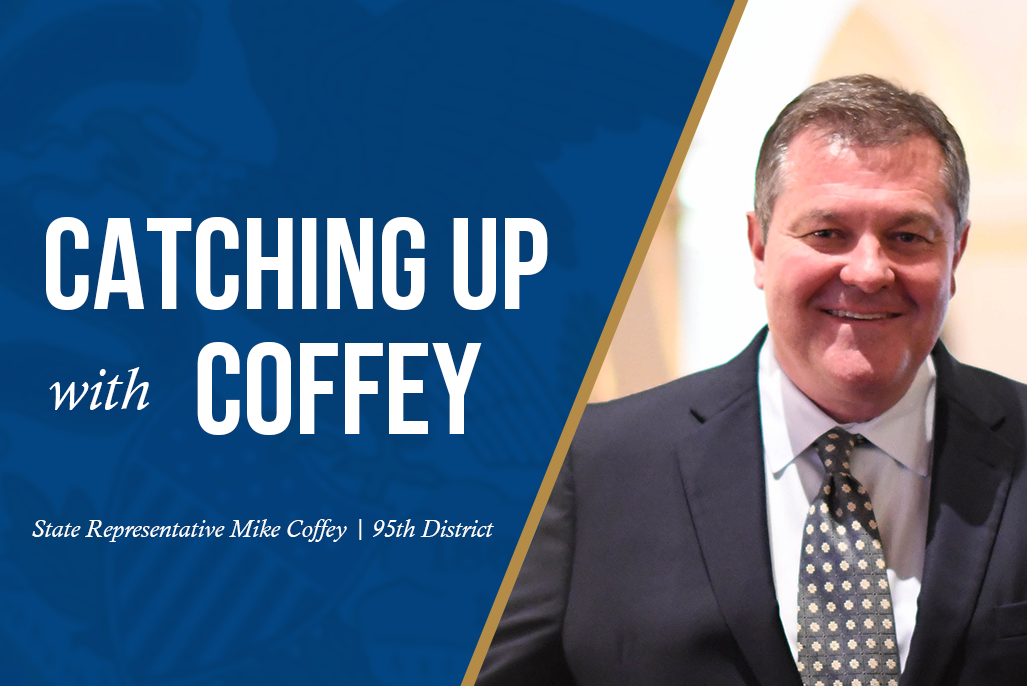GENERAL ASSEMBLY
Illinois General Assembly concludes quiet veto session. House Republicans, led by Tony McCombie and her leadership team, took the November 2024 veto session as an opportunity to welcome new lawmakers to the Illinois State Capitol. These included newly elected state representatives who will take the oath of office in the 104th General Assembly in January 2025.
Little legislative action was taken during the recently concluded Veto Session. Governor Pritzker and the Democratic supermajority punted controversial legislative proposals to the January lame-duck session of the current General Assembly.
Following the adjournment of legislative veto session in the Illinois House, House Minority Leader Tony McCombie issued the following statement:
“We do not need more time for out-of-touch Democrats to dream up harmful legislation. We need bipartisan legislation that focuses on the issues Illinois families care about most. Until the Democrat majority can get their priorities in order, the House Republicans oppose a Lame Duck session.”
State Representative Mike Coffey said this:

“Illinois lawmakers do not need to engage in a lame duck session to quickly pass legislation behind closed doors,” said Rep. Coffey. “We have seen previous lame duck sessions that end with controversial laws, such as the end of cash bail that was rammed through the General Assembly in 2021.”
JOBS
Illinois unemployment rate remained at 5.3% in October 2024. Based on the preliminary figures released by the Illinois Department of Employment Security (IDES), the unemployment rate remained unchanged from the 5.3% confirmed for the previous month of September. This Illinois jobless rate was 120 basis points higher than the comparable national unemployment rate of 4.1%.
The preliminary October findings continue to indicate that the post-COVID-19 economic recovery has effectively ended in Illinois, with payroll growth flattening out to zero. Illinois employers reported paying 6,142,400 (seasonally adjusted) non-agricultural workers in October 2024, down 2,400 from the equivalent number in September.
The overall picture of zero job growth in Illinois in 2024 contains large pockets of growth and decline. Over the most recently concluded 12-month period, Illinois employers of people in professional and business services reported cutting 18,400 Illinois jobs, and employers in financial services reported cutting 8,000 jobs.
Illinois continued to create new jobs in healthcare (up 30,400) and government (up 22,300) during the same 12-month period. Manufacturing-oriented metro areas within Illinois continued to experience comparative job stagnation and high unemployment in October 2024. Examples include Danville (6.2% unemployment in October 2024), Decatur (5.8%), and Rockford (5.4%).
Change to State law partly forestalls additional lawsuits based on biometric privacy. Many workplaces use technology-based identifiers, such as fingerprints, to verify that workers have signed in for their work hours and for other essential purposes. Workplaces constantly require people to sign in. As just one example, current federal law requires over-the-road truckers to maintain secure electronic logs for their work hours and mileage driven. These logs are essential to maintain the safety of our nation’s highways.
FIREARMS
Atty. Gen. Raoul asks appellate court to stay federal ruling striking down firearms ban. The decision by federal District Judge Stephen McGlynn found that the so-called “Protect Illinois Communities Act,” a January 2023 law that purports to ban almost all private-sector possessions of certain groups of firearms and ammunition supplies in Illinois, is unconstitutional. The 168-page decision struck down the law in its entirety, citing various case judgements from the United State Supreme Court and other courts that draw broad boundaries around the “right to bear arms” enshrined in the Second Amendment to the U.S. Constitution.

As with all federal district court decisions in Illinois, the decision can be appealed to the Seventh Circuit of the United States Court of Appeals, the Chicago-based federal appellate court. Illinois Attorney General Kwame Raoul, a Democrat, has filed an appeal. His appeal supports the law and opposes the judicial decision. As a move affiliated with the overall appeals process, the attorney general has also asked that the district court’s permanent injunction against the enforceability of the Protect Illinois Communities Act be stayed. If the appellate court grants the stay, the controversial law will remain in place, for now.
Criticisms of the new Illinois gun ban are widespread. Lawmakers who voted “no” against the new law, which included most Illinois House Republicans, pointed out that the definitions of banned firearms and ammunitions supplies set forth in the new law are vague and potentially unenforceable. They also, like Judge McGlynn, point towards the explicit right to bear arms contained in the federal Bill of Rights, which outranks all State laws.
OUTDOOR RECREATION
Firearm Deer Season Opens Friday in Illinois. Deer hunters in Illinois will be busy this weekend, as firearm hunting season begins this Friday and continues through Sunday, November 24. A second round of firearm deer hunting will be coming in two weeks, from December 5 through 8.
During Firearm Season, hunters can use shotguns, muzzleloaders, handguns, and centerfire rifles. Vertical, traditional, and crossbows can also be used, but only on private property. Hunters also must adhere to clothing requirements, which call for a solid blaze orange or blaze pink hat and an outer garment that displays at least 400 square inches of orange or blaze pink material. In 2018, Rep. Tony McCombie co-sponsored legislation that allowed deer hunters to wear solid pink gear in addition to solid orange.
Hunting hours during this period are one-half hour before sunrise to one-half hour after sunset. Hunters must also have proper deer permits and a valid hunting license. The bag limit is one deer per hunter, and over a 12-month period that begins on July 1, no hunter may harvest more than two antlered deer. Upon killing a deer, hunters must adhere to reporting/registering guidelines as outlined by the IDNR. Find license and permit information here.
